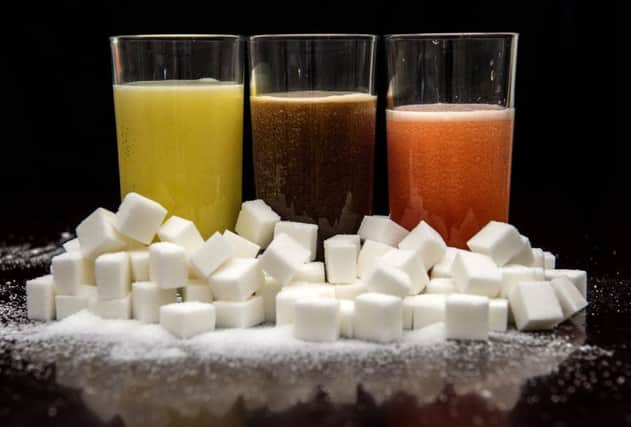Stephen Jardine: Truth is that we have to cut back on sugar


Anyone with a sweet tooth would have been well advised to avoid a meeting in Edinburgh earlier this week.
The Sugar Summit was called to look at the biggest challenge facing the Scots diet and to tackle the thorny topic of a tax on fizzy drinks.
Advertisement
Hide AdAdvertisement
Hide AdOrganised by the food action group Source, it could not have been better timed. On the day the Sugar Summit took place, new evidence emerged highlighting the scale of the problem. A report for Food Standards Scotland revealed there was 115g of sugar in the food the average Scot purchased daily last year - well above the World Health Organisation’s recommended intake of 25g a day.
Food Standards Scotland says the food and drink industry should be given 12 months to come up with ways of reducing sugar consumption but failing that, the organisation wants the Scottish Government to make plans for the introduction of a sugar tax.
Something has to change. Scotland has been missing healthy eating targets for 15 years and our love affair with sugar shows no sign of waning. A shocking 56 per cent of Scottish adults and 31 per cent of children are now overweight or obese.
But how we consume sugar is evolving. Consumption of sugary fizzy drinks has fallen by 20 per cent in recent years but consumers have kept up the sugar habit by consuming more sweet treats.
In the UK, we consume over two million tonnes of sugar every year. Often it’s found in the food and drink we think of as healthy such as low-fat yoghurt and sauces. That means a couple of spoonfuls of barbecue sauce contains as much sugar as a glazed doughnut.
If the current trend continues, the Food Standards Agency warns that 40 per cent of Scots could be obese by 2030. That is a ticking timebomb that would have huge implications for this country, not least an unsustainable burden on the NHS.
So we need to change. Just as our palates have become used to lots of salt, so our taste receptors have become dulled to the impact of sugar. We need to reset that and stop chasing the sugar hit.
In Scotland, the country’s top chef Andrew Fairlie has backed the call for a sugar tax on fizzy drinks. Critics say by focusing on this, the wider issues around sugar risk being ignored or missed.
Advertisement
Hide AdAdvertisement
Hide AdBut supporters of the tax believe it is achievable and something that could quickly address the problem is better than a long, drawn out campaign on a wider issue that might not even be achievable.
All the evidence from other places shows a sugar tax does work. Mexico has led the way on this with a 10 per cent tax, reducing the purchase of sugar-sweetened soft drinks by 12 per cent.
For campaigners, there is a long way to go. The sugar industry will fight long and hard to protect it’s vested interests but the smoking ban in public places shows even the most powerful lobby groups can be overcome.
One thing is obvious, tax or no tax, in a country where dental decay is the number one reason children are admitted to hospital, doing nothing is simply not an option. If we really want to become a Good Food Nation, the work starts here.